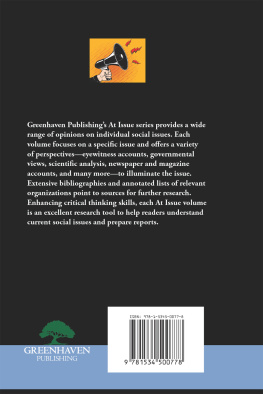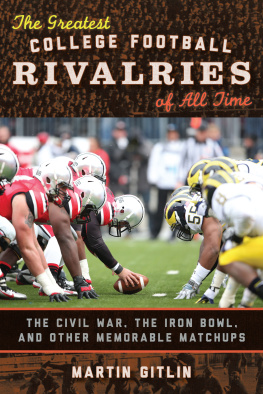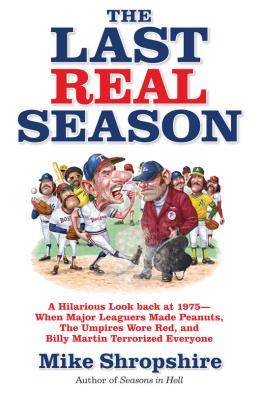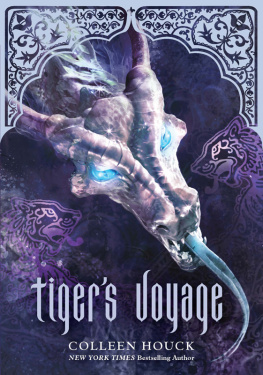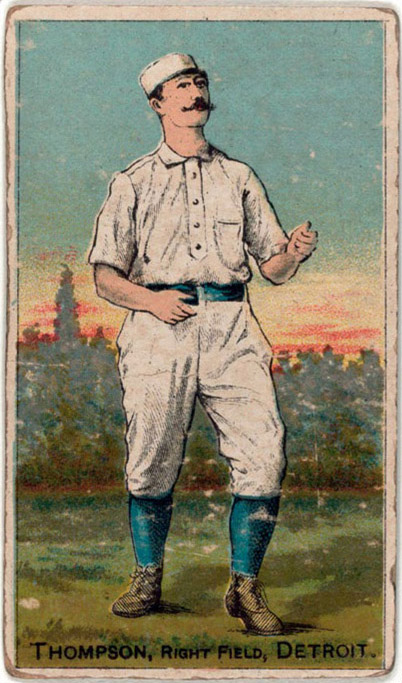WILLIAM G. THOMPSON YEARNED TO DO MORE THAN SIMPLY ATTRACT a professional baseball team to Detroit in 1881. The mayor wanted to own it as well. He got his opportunity when the woeful Cincinnati Reds disbanded after angering league officials by selling beer and renting out their ballpark on Sundays. That left an opening in the National League that Thompson and his fledgling Wolverines filled. The nickname was adopted two decades after it had been first embraced at the University of Michigan.
Thompson believed the city, whose population had soared over 123,000 in 1880, had grown populous enough to support a major-league team, which was born two decades before the Tigers became a founding member of the American League. Its citizens had already shown an interest in the newfangled sport decades earlier. A group of wealthy folks bored with cricket formed a baseball team in 1858. They practiced diligently before playing the first game in city history on the grounds of a local farm on August 8, 1859, against a team of clerks and office workers that nicknamed themselves the Early Risers. It was no contest. The latter was smoked in an ERA-destroyer, 5921.
The owner figured that Detroit proved itself worthy of a franchise in May 1879 when a team of Eastern players called Hollingers Nine set up residence at Recreation Park on the corner of Brush and Brady Streets and lost to a team from Troy, New York, before 1,500 patrons occupying the wooden stands.
Wolverines manager Frank Bancroft, a Massachusetts hotel owner and late arrival into the world of baseball who guided the 1880 Worcester Ruby Legs to a 40-43 finish in his only year as a skipper, boasted little experienced hitting or pitching talent. The roster of his new club was dotted with castoffs and rookies. But they performed above expectations. They debuted with a 6-5 loss to Buffalo in front of 1,286 fans. A 3-10 start knocked them out of the pennant race permanently, but they recovered to finish 4143, spurred by the fine performances of catcher Charlie Bennett, first baseman Martin Powell, and outfielder George Wood, all of whom sported typical-of-the-era moustaches and spearheaded a painfully young lineup that featured only one player older than 26.
Among the Kiddie Korps was 20-year-old pitcher Stump Weidman, who gained the nickname from his 5-foot-7, 165-pound frame. Weidman led the National League with a 1.80 earned run average. But the club required little pitching depthrookie George Derby started and completed 55 games in compiling a 29-26 record and strong 2.20 ERA.
Those who thought the promising inaugural season destined the Wolverines to greatness had another think coming. They raised hopes the following year with a 25-14 start that placed them atop the standings before collapsing. A six-game losing streak in late August doomed them to a fifth-place finish as neither Derby nor Weidman performed to expectations and the downfall of Powell weakened the offense considerably. The .230 team batting average ranked last in the league.
Rampant gambling that permeated the sport cost the team dearly early that year. Umpires during that era were assigned to specific teams to cut down on travel costs. Shady ump Dick Higman was quite unfortunately appointed to the Wolverines. Thompson grew angry over several questionable calls during a stretch of struggles in late May and early June. The owner even hired a private investigator to shadow Higman. The sleuth intercepted a note from the umpire to gambler James Todd encouraging him to bet on Wolverine opponents. Thompson displayed the correspondence to fellow National League owners along with a handwriting sample of Higman to prove guilt. The umpire received a permanent ban before, appropriately, becoming a bookie in Chicago.
The defeats likely caused by such dishonesty could not excuse that midseason collapse nor the downfall that began before a game was played the next year when Bancroft bolted to manage the Cleveland Blues (then led the Providence Grays to the championship in 1884). Replacement Jack Death to Flying Things Chapman, whose greatness tracking down baseballs as an outfielder during his playing days earned him the colorful nickname, proved himself far less proficient as a manager.
His 1883 club rolled merrily along into early June with a 15-9 record before an epic downfall spurred by a pitching collapse. The Wolverines surrendered an average of 9.5 runs per game during a 2-19 stretch, then allowed a ridiculous 93 runs in a six-game period in the midst of a 1-14 run in August and September. They hit bottom in a September 6 loss to Chicago, yielding a league-record 18 runs in one inning en route to a 266 defeat.
That season, however, was a picnic compared to 1884. Thompson foolishly released Powell, who had remained one of the clubs most productive hitters and rebounded to bat .319 for the Cincinnati Outlaw Reds of the American Association before retiring. But little could anyone have imagined the utter feebleness of the Detroit offense, which featured three starters with batting averages of .177 or lower and ranked last in the league in runs scored, on-base percentage, and strikeouts, nor the struggles of Weidman, who finished with a disturbing 4-21 mark. Ace Frank Meinke also exceeded 20 losses, more a victim of a lack of run support than poor performance.
There was no pretense of respectability for the Wolverines that year. They showed immediately why they would emerge as one of the worst teams in baseball history by falling to 1-15 out of the gate and embarking on two 11-game losing streaks, then outdoing themselves with runs of 0-12 and 0-9 in August and September to finish 28-84.
So much for Chapman. The revolving door at the managerial position was about to spin faster. Thompson hired player-manager Charlie Morton, who had the previous year played the same role with Toledo of the American Association. That move bombed when the 1885 Wolverines dropped an absurd 28 of 30 in May and June after a 3-0 start and surrendered double-figure runs in 12 of those games.
But Morton made one prudent move before moving on in favor of fellow one-time AA manager Bill Watkins. He granted a tryout to outfielder Sam Thompson, then signed him a week before his firing. Thompson sparked the Wolverines by sparking the offense. The club embarked on a 12-1 tear and averaged nearly seven runs per game in the process. Detroit fell apart again, but one could not blame Thompson, who emerged immediately as its premier hitter, leading the team in batting average and home runs despite his late arrival.
Sam Thompson emerged as the first star of the franchise.
COURTESY OF THE LIBRARY OF CONGRESS
The Hall of Famer blossomed into the teams first star. But he required help to transform the Wolverines into a contender, let alone a champion. And he received plentythanks to new owner Frederick Kimball Stearns, son of wealthy drug manufacturers, as well as a musician who founded the Detroit Orchestral Association, which morphed into the Detroit Symphony Orchestra. Stearns succeeded in transforming the Wolverines into a juggernaut by purchasing the Buffalo Bisons and demoting them into a minor-league team while commandeering their premier players. Included were first baseman Dan Brouthers, shortstop Jack Rowe, third baseman Deacon White, and outfielder Hardy Richardson. The emergence of unusually nicknamed pitchers Lady Baldwin and Pretzels Getzien, a German immigrant, finally provided a dominant one-two pitching punch.
The overhauled Wolverines displayed their dominance in 1886 by embarking on a 15-0 blitz in May and remaining on a roll. They won 12 of 13 during a June tear and 15 of 16 at the end of July to forge 4 games ahead in the National League pennant race. There was just one problem, and they resided in Chicago. Detroit finished 87-36, but that only earned it the distinction of being the best second-place club in National League history. The Wolverines lost twice in the Windy City in late September to doom their title hopes. But their newcomers had transformed them into a powerhouse. Thompson, Brouthers, and Richardson led an offense that scored an incredible 315 more runs than it had the year before while the dynamite mound duo combined to win 72 games.




